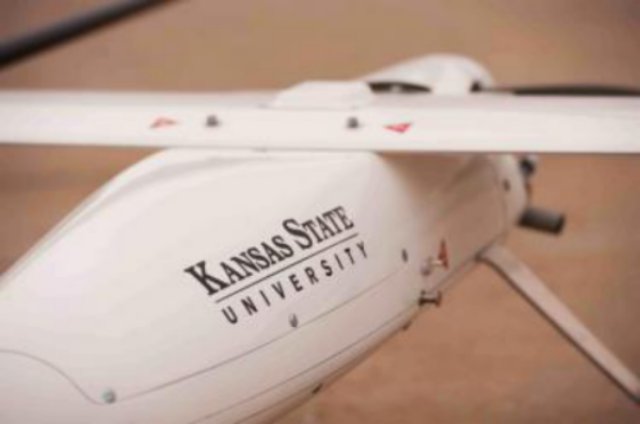 Unmanned aircraft systems will have a significant impact on Kansas’ precision agriculture industry and overall economy, according to elected officials, academics and industry leaders speaking at a UAS flight demonstration at Crisis City in Salina, July 2.
Unmanned aircraft systems will have a significant impact on Kansas’ precision agriculture industry and overall economy, according to elected officials, academics and industry leaders speaking at a UAS flight demonstration at Crisis City in Salina, July 2.
U.S. Senator Jerry Moran (R-Kan.) joined leaders at Kansas State University and Michael Toscano, President and CEO of the Association for Unmanned Vehicle Systems International (AUVSI), to launch a flight demonstration of numerous UAS used to enhance the care of crops, livestock, pasture and rangelands.
Senator Moran and Toscano also delivered remarks on the significant economic growth and job creation potential of UAS in Kansas. “As a global leader in aviation and aerospace, Kansas is a pioneer in the Unmanned Aircraft Systems market, which holds great promise for boosting the economy and creating jobs in our state,” Senator Moran said.
“As the aerospace industry grows and looks to take on new UAS ventures and industries, there is real potential for this platform to be used responsibly and safely in an industry already booming in Kansas: agriculture. The number of ways farmers and ranchers can utilize UAS are endless – from mapping the spread of disease or insects within a field to applying fertilizer to a specific area of crops – and I look forward to continued progress in this field.”
As a national leader in UAS advancement, Kansas is poised to benefit significantly from the rapidly growing unmanned systems industry and the forthcoming integration of UAS into the U.S. airspace.
A recent AUVSI study projects that UAS integration will contribute an economic impact of $2.9 billion and create 3,716 new jobs in Kansas by 2025. “I see significant economic development opportunities for Salina and the State of Kansas,” said Tim Rogers, A.A.E., executive director of the Salina Airport Authority. “The UAS industry offers opportunities for young Kansans to secure premium jobs right here at home.”
Scientists in the U.S. have already begun using small remote-controlled helicopters to help farmers detect diseases and stress in their crops. The helicopters take photographs and measurements that allow farmers to keep an eye on their large fields. An increasing number of American colleges and universities, such as Kansas State, are advancing UAS technology as a tool in agriculture as well.
For example, researchers at Kansas State have been able to use UAS to far more accurately and efficiently locate and quantify harmful algae affecting many Kansas lakes and ponds.
Source: KSAL
